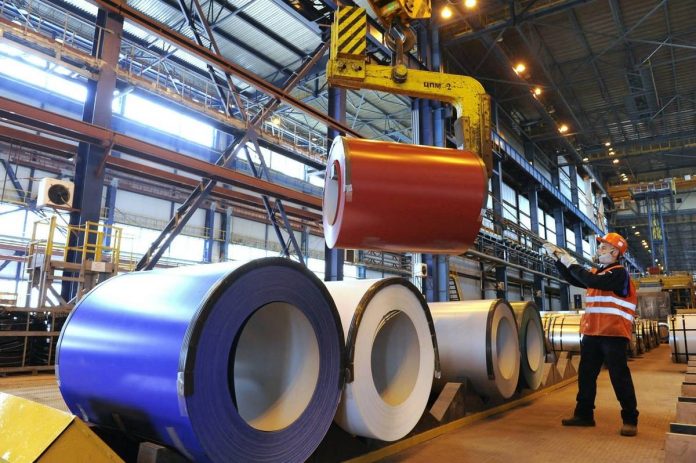Купуючи російську металопродукцію, італійські промисловці фактично підтримують військову агресію Росії проти України. Про це в інтерв’ю для італійської газети Corriere della Sera заявив генеральний директор Групи «Метінвест» Юрій Риженков.
Європейський Союз, незважаючи на запроваджені санкції, у жовтні 2022 року дозволив додатковий імпорт 10,7 млн тонн російської сталі до країн-членів ЄС. Це рішення сприяло продовженню постачання російських слябів на європейські ринки, що, на думку Риженкова, підриває економіку Італії та сприяє фінансуванню війни Росії проти України.
Згідно з початковими домовленостями, імпорт російських слябів мав завершитися 30 вересня 2024 року. Проте, у грудні минулого року, країни ЄС одноголосно продовжили цей термін до 2028 року, що фактично дозволило Росії продовжити постачання своєї сталі в Європу. Вартість цієї продукції на 15% нижча через нижчі витрати на електроенергію в Росії, що робить її привабливою для італійських підприємств.
Юрій Риженков звернув увагу на те, що така політика є руйнівною для італійської промисловості та сприяє підтримці російської економіки. На його думку, повна заборона на імпорт російських слябів не спричинила б серйозних проблем для європейських підприємств, як стверджують деякі представники галузі.
«Деякі італійські промисловці, купуючи сляби у Росії, фактично фінансують військову агресію Москви», – зазначив Риженков. Він також додав, що це не тільки шкодить економіці Італії, але й підриває зусилля чесних виробників, які свідомо відмовляються від купівлі російської продукції.
Риженков також підкреслив парадоксальність ситуації в Італії, де уряд відновив контроль над заводами у Таранто, які раніше належали індійській компанії ArcelorMittal. Ці підприємства продовжують працювати з низьким завантаженням, тоді як частина італійських підприємців надає перевагу російській продукції, підриваючи тим самим італійську промисловість.
На тлі цієї ситуації «Метінвест» Ріната Ахметова планує інвестувати в завод з виробництва зеленої сталі в італійському Пйомбіно. Це дасть змогу компанії зв’язати високоякісну українську руду з виробництвом сталі в Італії та сприяти розвитку металургії в обох країнах.
Раніше депутати Парламентської асамблеї Ради Європи закликали ЄС посилити санкції проти російської металургії, зазначивши, що вона продовжує отримувати мільярди від продажу продукції, що йде на фінансування війни. Шляхом тиску Кремлю вдалося продовжити квоти на експорт російських слябів до ЄС ще на чотири роки, що дозволить Росії отримати прибуток на суму понад 8 мільярдів євро.


